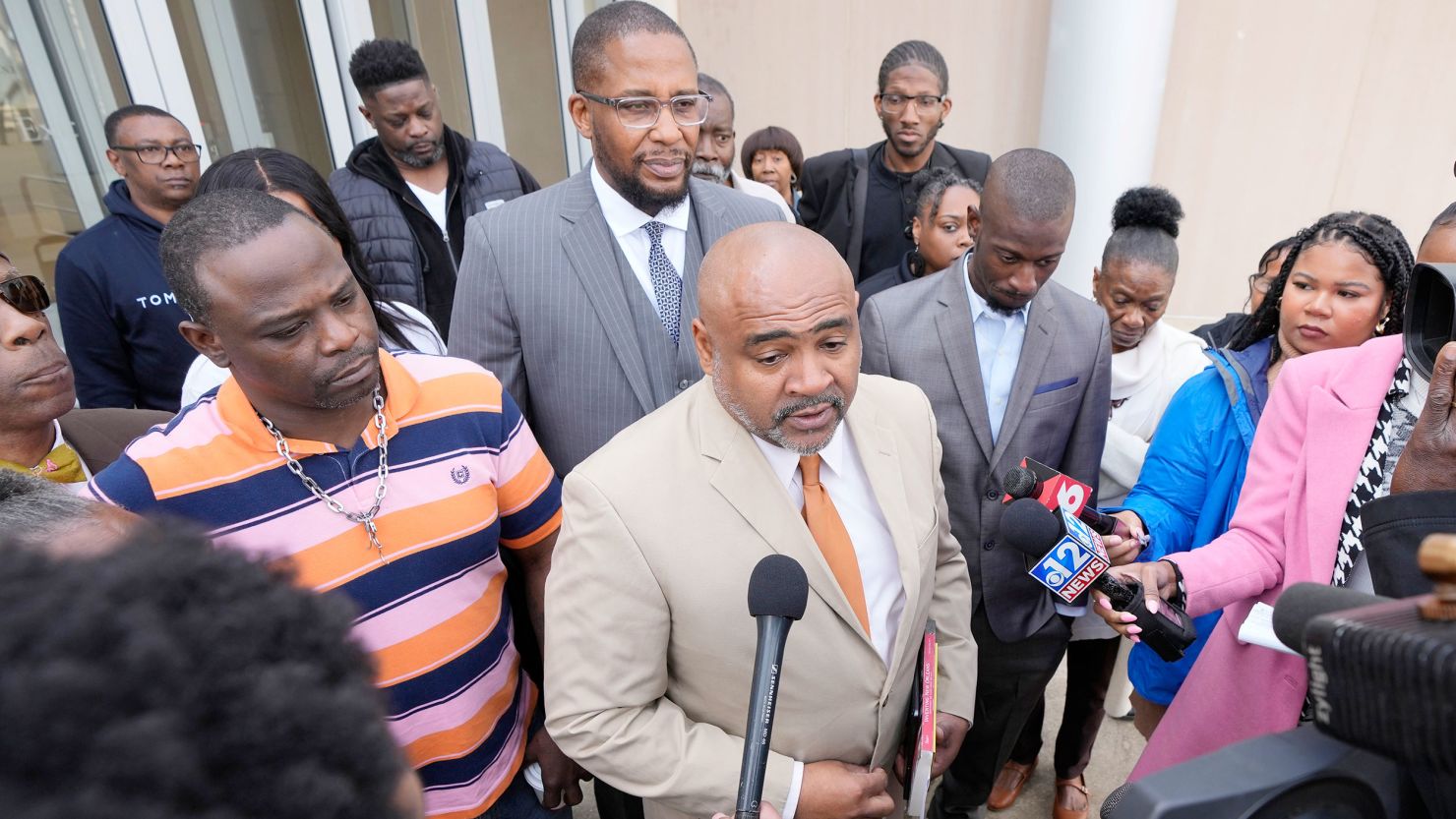
In Short
- Reflections on the sentencing hearings for black men tortured by white law enforcement.
- Impact on the victims’ families and community.
- Societal implications and calls for justice.
TFD – Delve into the aftermath of the sentencing hearings in a landmark torture case, shedding light on the impact and reflections. Stay informed with TheFoxDaily for comprehensive coverage.
A cousin of Emmett Till’s mother thought of her own kid on the day of the final two sentencing hearings for the two Black men who were tortured by six White law enforcement officials this week.
Priscilla Williams Till remarked of her 19-year-old son Emmett Louis Till Williams, “I haven’t talked to him today, and that’s unusual.” Emmett Louis Till Williams was named for the kid whose 1955 lynching, which occurred a few hours’ drive away and is still a startling landmark of the country’s civil rights fight.
While talking about the events of the week, the mother suddenly realized what had happened: the two daily hearings where the now-former officers were sentenced to 10 to 40 years in prison each at Jackson’s federal courthouse after entering guilty pleas to 13 federal felonies related to the abuse of Michael Jenkins and Eddie Parker.
Till called her “baby” after picking up her phone.
He did not answer.
till things became tense. She resumed her conversation before pausing. Then, when she sat at a seat in Johnny T’s, a well-liked blues club and bistro operated by Black people in the Farish Street neighborhood—where Black wealth predominated prior to integration—she became engrossed once more in her phone.
She made a friend’s call.
“Is Emmett present today?” till prompted. “He left for work?”
She phoned her teenager again. At last, he answered. He was working. He was fine. Safe.
The mother’s brief concern that her child had suffered harm subsided. However, its foundations would not go away, at least not while her thoughts were consumed by the horrifying information surfacing in the last stages of the case involving the self-described “Goon Squad,” whose members and associates broke into the home of a lady Parker had been providing care for illegally in January, according to a federal lawsuit.
According to the lawsuit and court records, the then-officers physically restrained, stomped, waterboarded, tased, and sexually molested Parker and Jenkins for almost two hours before one of them held a gun to Jenkins’ mouth and pressed the trigger in a mock execution. The lawsuit further claims that the cops were “oppressive and hateful against their African-American victims in their repeated use of racial slurs in the course of their violent acts.”
Till stated that the racialized phrases are a reflection of the physical items, practices, and values that are passed down through the generations. The children inherit this.
She remarked, “And look at these kids in the courtrooms, look at their suffering.”
Beyond the courtroom, the “Goon Squad” sentencings also prepared the majority-Black community of greater Jackson to face the painful truths of the case: the lingering trauma of the survivors, the perpetrators’ frequently agonized courtroom admissions of guilt, and the pressing question of how to work toward a more just future.
The nation is wrestling with the use of force by police, particularly in relation to individuals of color. This is particularly evident in the wake of the 2020 murder of Black father George Floyd by a White Minneapolis officer, whose federal sentence was less than some of the ones handed down this week in Jackson.
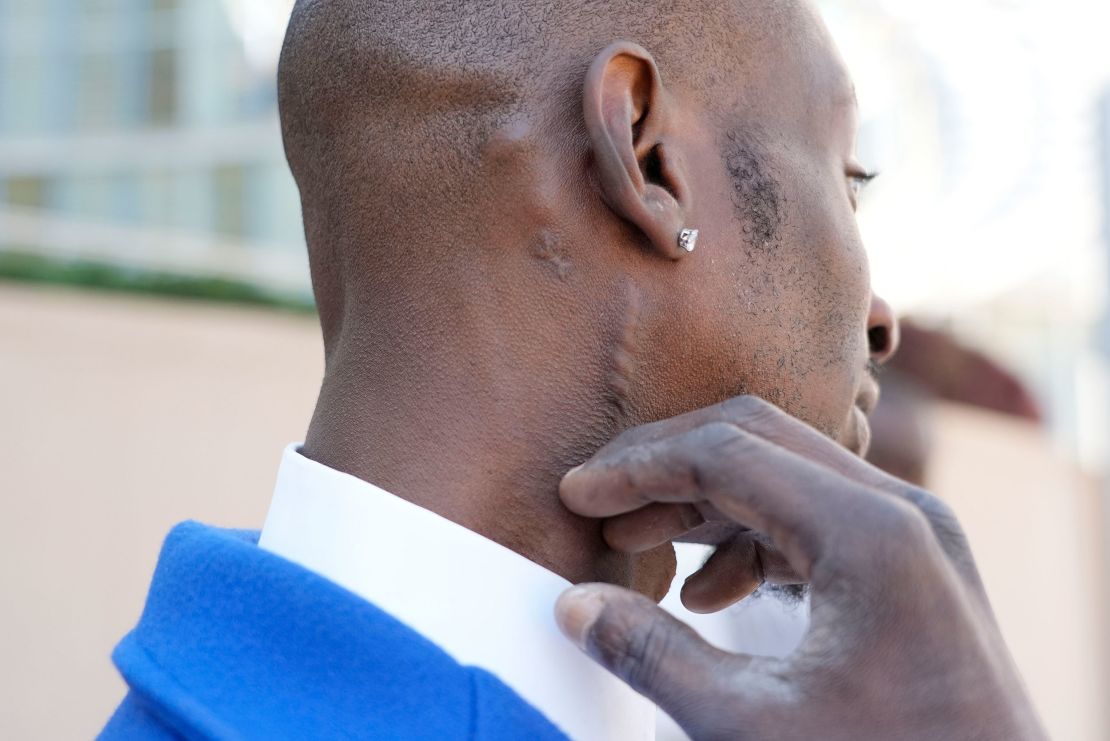
The facts of Jenkins’ and Parker’s “pure hell,” as the FBI director described it, gripped the courtroom here – its packed gallery guarded by US Marshals – as the two survivors day after day this week came face-to-face with their tormentors, one-time Rankin County Sheriff’s deputies and a Richland Police officer.
Parker sat with the still-relearning-to-talk Jenkins, attorneys Malik Shabazz and Trent Walker, and their friends and family, all while sporting a chain with an open-handcuffs pendant.
Jenkins and Parker had to close their eyes every day as prosecutors and defense lawyers related the details of their torture session. According to federal prosecutors, the session began that evening with a report of suspicious behavior and multiple Black men staying at a White woman’s house from a White neighbor. This was a startling resemblance to the mid-1900s allegation against Emmett Till.
Shabazz read aloud from prepared remarks made by Jenkins and Parker during the course of the hearings this week to make sure their experiences would be reflected in the court record and in the rulings made by the seasoned federal judge. At three of the hearings, Parker ultimately spoke on his own behalf.
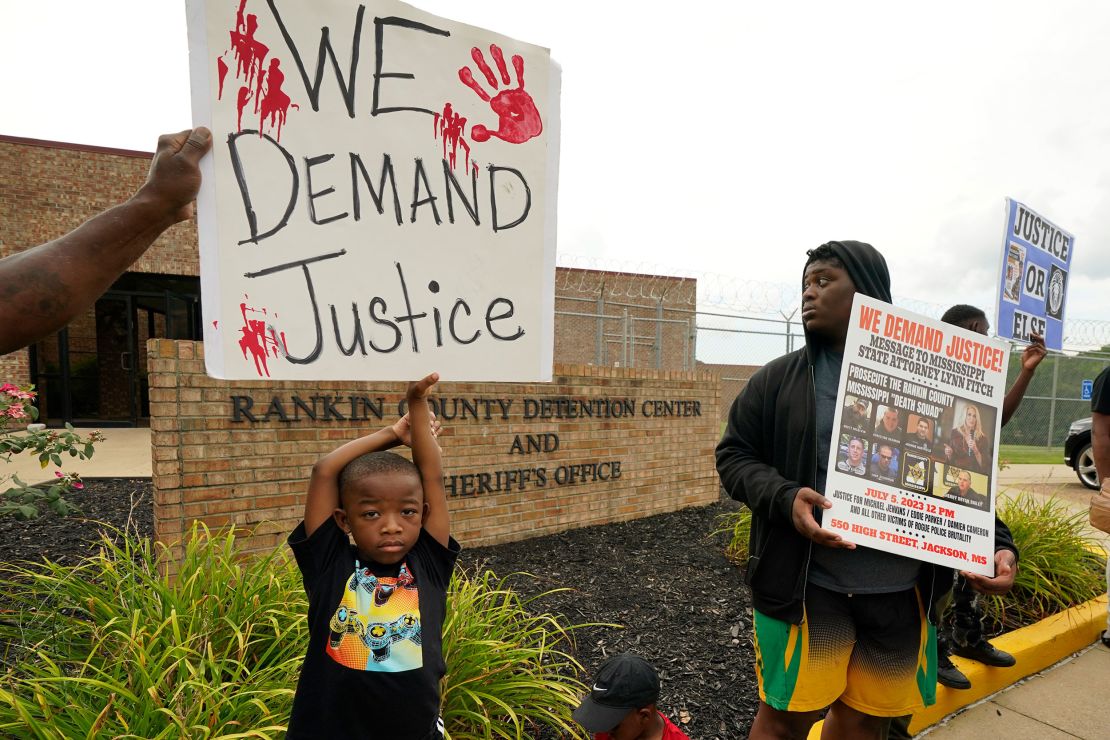
“I saw the devil come to me that night,” the witness remarked while dabbing away some tears. “In my house, where I should have felt safe, I saw the devil staring me in the face.
How did I obtain this? Nothing.
Some defendants, shackled at the wrists and waists and dressed in navy jumpsuits, also shed tears as they addressed Jenkins and Parker directly; nonetheless, their genuine remorse was occasionally greeted with sympathy or suspicion.
A citizen of Jackson is shocked yet unsurprised.
Former Lieutenant Jeffrey Middleton stated he took responsibility for his actions. According to federal prosecutors, he had bragged about the “Goon Squad” and displayed sheriff’s office insignia bearing the group’s name, a Confederate flag, and a noose.
According to the statement Shabazz delivered on his behalf, Parker, however, disagreed with Middleton’s apology, saying, “I’m offended that Jeffrey Middleton is not apologetic and is trying to make light of his role in these torture sessions and crimes.” He struck me with a sword.”
With tears in his eyes, former deputy Hunter Elward addressed the survivors directly and said, “You can’t tell what you’ve seen.” I really apologize for causing that. I despise myself for it. I’m sorry I gave that to you. I accept all responsibility.”
Parker then got to his feet and responded in a way that was startling, if not unimaginable: “We forgive you, man.”
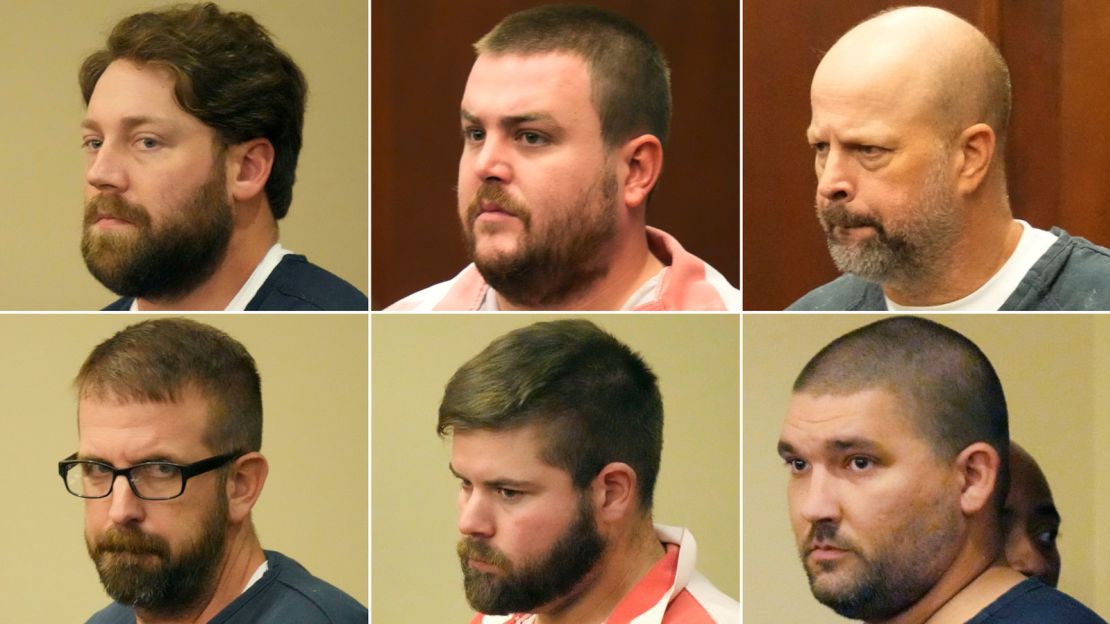
Jenkins, however, told CNN that Elward’s apology—which came after Elward had shot him in the mouth—”meant nothing” to him following the hearing.
Through tears, former deputy Daniel Opdyke addressed Parker, “Nothing I say can undo the harm that I caused you. I sincerely apologize for any hurt or hardship I may have given you.
However, Parker left the courtroom with his aunt, wearing a tough expression despite tears streaming down his cheeks.
Priscilla Till, the director of the Emmett Till Justice for Families Foundation, which works to eliminate racial injustice systems, was also crying in court at the time. Later on, she mentioned that Opdyke was the youngest person sentenced—at 28.
He is a child, she remarked. Furthermore, I’m not denying his guilt. But a child with that much hate who became this man with all this control, misusing it, and now he’s regressed to thinking how he’s messed up and knows he’s going to suffer, I felt his pain.”
Shinese Hinkle, 34, a native of Jackson, followed updates about the sentences from the hotel where she works, which is located across from the federal courthouse. She started thinking about how far her state’s law enforcement officials may go in abusing their official authority.
It simply got me to thinking: How many times did something similar happen before they resorted to such drastic methods, were discovered, and were held responsible? stated Hinkle, a waiter at a restaurant within the lodging that this week housed Jenkins, Parker, their lawyers, and supporters.
When Hinkle learned last year of the macabre specifics of what the officers had done to Parker and Jenkins, she claimed to be “shocked.”
She wasn’t shocked, though.
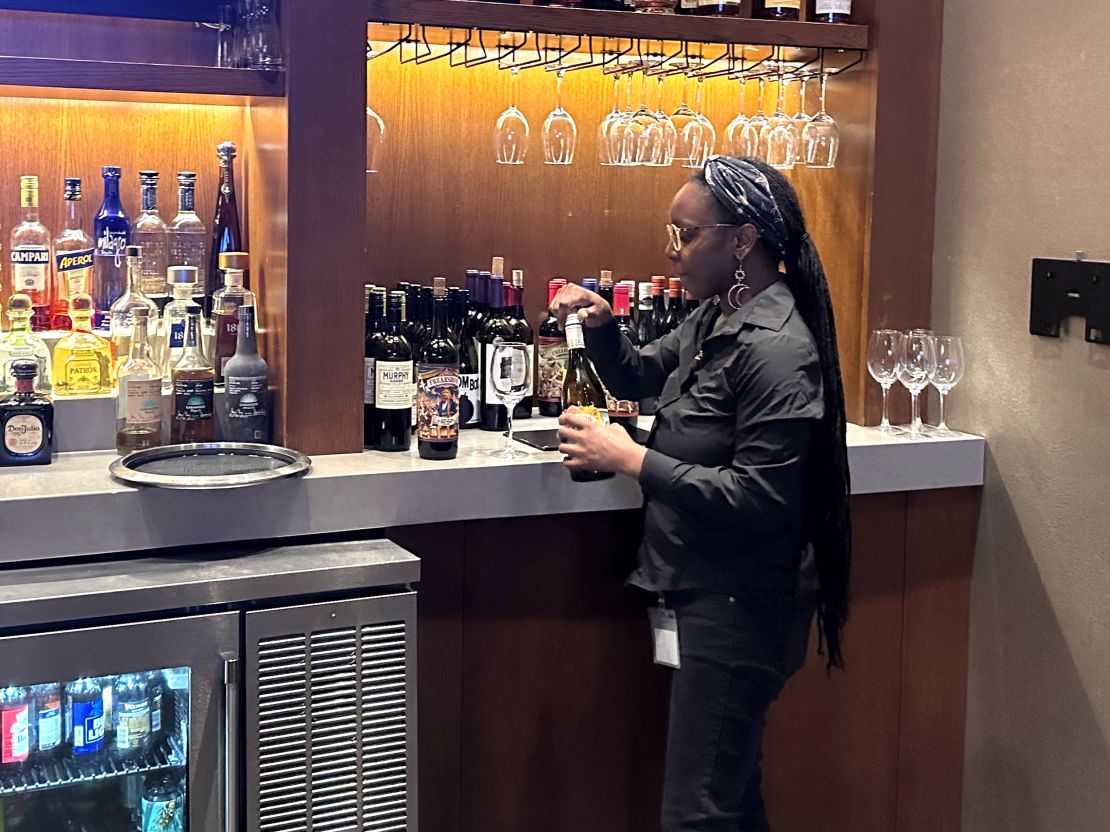
“It made me feel like those who are supposed to serve and protect us would rather target and criminalize us, instead of treating us like normal people,” the Black woman stated.
“This is 2024, not 1964.”
Prior to the issuance of the first sentence this week, the Rankin County NAACP branch had written to the court requesting severe penalties in the “Goon Squad” case. The president of the civil rights organization proposed that harsh penalties could direct the movement toward justice.
Before the first sentence was delivered, Angela English told CNN, “We can’t erase Mississippi’s past.” “But we can move forward today and set a precedent that has never been set before.”
“This is 2024, not 1964,” she continued.
Jenkins’ father then expressed his thanks and referred to the punishment as “something unheard of” in the state following US District Court Judge Tom Lee’s imposition of the worst sentence on an ex-investigator he claimed had performed the most “shocking, brutal, and cruel acts imaginable.”
Melvin Jenkins said, “I’ve lived in Mississippi for 68 years, and I’ve never seen justice like this.”
Additionally, US Attorney General Merrick Garland confirmed the severity of the Black men’s torture and abuse after the last sentencing on Thursday, saying in a statement that “the depravity of the crimes committed by these defendants cannot be overstated.”
And the consequences might not be finished.
The local NAACP chapter is now demanding an examination of Rankin County’s police practices and patterns. The US Justice Department is still requesting information from the public via a toll-free line about claims of abuse by the sheriff’s office. Additionally, some people here are trying to remove the sheriff, who issued an apology and declared himself “ashamed” following his officers’ guilty pleas during the torture episode.
Nevertheless, English and her NAACP colleague Will Sims—who were both among the first Black students to integrate local schools around 1970, they claimed—visited the imposing Confederate monument in the center of Brandon, the seat of Rankin County, less than an hour after the last of the six “Goon Squad” case officers was sentenced.
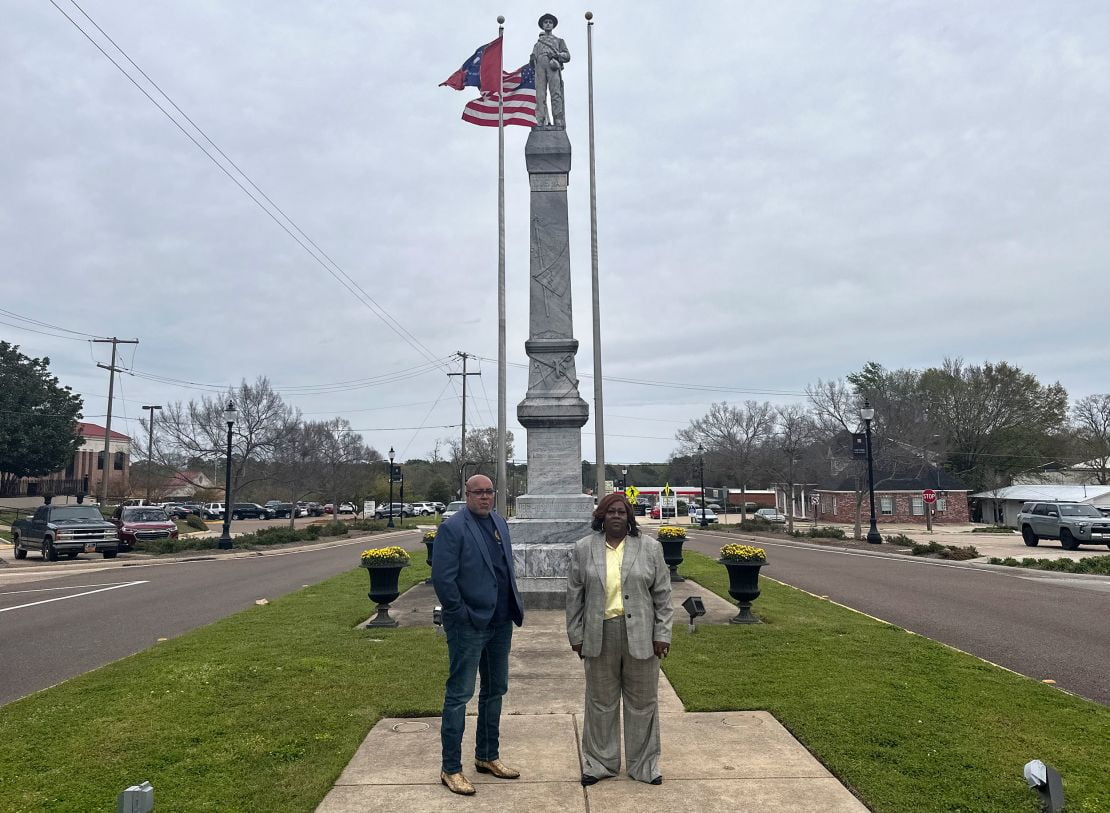
Sims gestured to the inscription on the 1907 building, which is crowned by a monument of a Confederate soldier. He claimed to have read the words “Men die, principles live forever” on a field trip in the fourth grade.
Sims remarked, “That always stuck in my heart for some reason.” For me, it meant that there is a specific way of living and that you have to understand where you fit into this society and this era. Nothing will ever change about it.
For English, the monument serves as a constant reminder of the immense suffering endured by her family: in 1909, her great uncle Willie McLin, also known as Will Mack, was hanged from the monument following an accusation of assault by a White woman.
English said, “This statue represents death.” “It stands for evil.”
A car carrying White teenagers passed by shortly after she sat down on the stone platform, and someone yelled, “You can’t sit there!”
The English laughed. She then turned to face Sims.
“They’re not happy that we’re here,” she grinned.
Conclusion
The sentencing hearings have left a profound impact, underscoring the need for justice and societal reflection. Let’s continue to advocate for fairness and accountability.
Connect with us for the Latest, Current, and Breaking News news updates and videos from thefoxdaily.com. The most recent news in the United States, around the world , in business, opinion, technology, politics, and sports, follow Thefoxdaily on X, Facebook, and Instagram .
